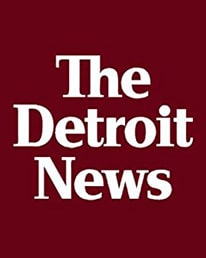
Originally published in The Detroit News
By Arthur Rizer and David Safavian
President Kennedy once remarked: “When written in Chinese, the word ‘crisis’ is composed of two characters. One represents danger and the other represents opportunity.” America is clearly facing twin crises — the coronavirus pandemic and massive civil unrest after the death of George Floyd. These events present a once-in-a-generation chance to reset and revive relations between police and the communities they serve. Let’s hope our leaders are far-sighted enough to grasp the current opening.
There is no doubt that a trust gap yawns between police and communities where blight and poverty reign and where citizens feel “over-policed.” Talk to anyone living in the east side of Detroit, the west side of Philadelphia, or the south side of Chicago, and the roll of the dead innocents is like a refrain: Tamir Rice in Cleveland. Walter Scott in North Charleston. Alton Sterling and Philandro Castile in Minneapolis. Botham Jean in Dallas. Atatiana Jefferson in Fort Worth. And now, of course, Breonna Taylor in Louisville and George Floyd in Minneapolis. It comes as no surprise that a 2014 Marxist Poll found two-thirds of African-Americans have just “some” or “little” confidence that police will refrain from using excessive force when they interact with citizens. Voices within the African-American community are condemning police for taking a Heavy Hand with peaceful protesters.
Police, on the other hand, face a no-win situation when anarchists hijack protests, turning them into potentially dangerous confrontations for all concerned. More broadly, our police increasingly feel unsupported by communities that have turned against them. Indeed, much of the rhetoric coming from militant factions within the protests urging a “War on Cops”. And it’s not just slogans and chants. At least three law enforcement officers have been assassinated during the protests, and many more injured in the line of duty.
With the acrimony between police and protesters, perception has become reality. The gulf of trust between law enforcement and those living in communities of color and poverty remains the greatest challenge for policing in America today. If whole communities lack faith in the police, law enforcement has lost a critical tool: cooperation from the law-abiding. This loss of trust has troubling implications for policing efforts in a democracy, where the use of force by the state must rest on a bedrock of accountability and legitimacy.
This gulf is of long standing and is not going to be resolved overnight or by a few photo ops. American policing has a long way to go to overcome the fear and mistrust that several decades of over-policing and violence has created. But if law enforcement is looking for a place to start this process, the spread of coronavirus and the terrible toll it is taking in many communities — especially poorer neighborhoods where opportunities to social-distance are limited — presents a place to start rebuilding trust. Police should take this opportunity to demonstrate publicly that they can be positive agents to improve daily life in communities of color, and rebuild the relationship that has (no pun intended) taken a beating.
Given the dynamics since the murder of George Floyd, police are retrenching, re-arming, and approaching the problem set in an aggressive manner, and from one point of view that is understandable. But there are other ways to rebuild trust.
By coordinating with school and church leaders — who often know where the most vulnerable families in their communities are located — police could easily be working to distribute food aid to shut-ins or run wellness checks on the elderly. Helping the homeless access shelter and health services is another area where law enforcement officers, who frequently interact with vulnerable populations, can help to save lives. Most importantly, officers should be encouraged to use cite-and-release (that is, releasing suspects with a citation to appear in court) for all kinds of low-level offenses, especially the so-called “public order” offenses like jumping a subway turnstile, public drunkenness, or petty thefts. All of these things can reduce the likelihood of a second wave of COVID19, while generating goodwill and trust between our police and those who have given their consent to be governed.
None of this is a betrayal or reversal of the primary duty of law enforcement: to maintain safe communities. But between the COVID19 epidemic and the civil unrest, “public safety” must evolve, with new approaches to community engagement.
This could be the moment when police can begin to change hearts among those communities that have felt abandoned — or worse, targeted. Re-thinking the job of policing during this epidemic, and re-orienting it with a greater emphasis on public service, can go a long way toward restoring trust and rebuilding relationships. It is in everyone’s interest to defuse the current tensions. In taking some small, but important first steps, our police can show communities that both parts of the old motto still hold: to protect and serve.
Arthur Rizer is the criminal justice and civil liberties policy director at the R Street Institute. Arthur is also an adjunct professor at Antonin Scalia Law School, GMU and a former police officer and federal prosecutor. David Safavian is the general counsel of the American Conservative Union and a former police reserve officer in the District of Columbia.